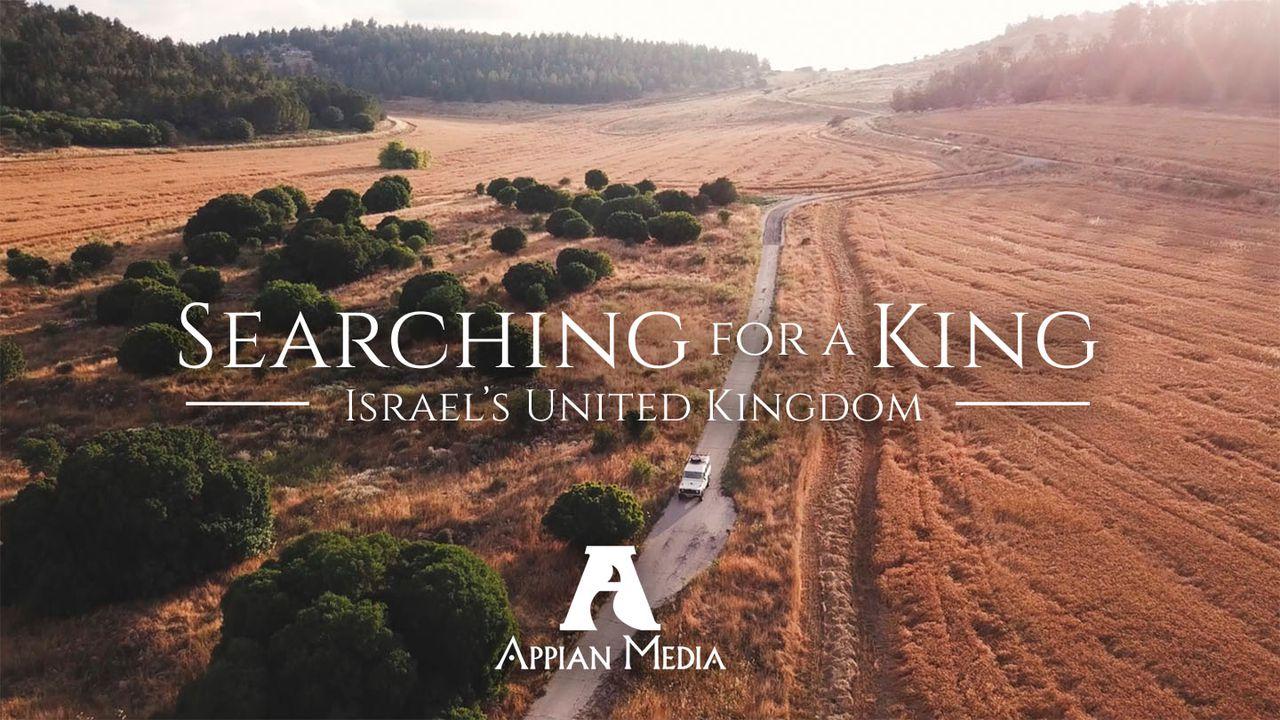Searching for a KingExemplo

Is the Bible real?
Pop quiz! (Don’t worry, your answers won’t be graded.)
How do you view the Bible? Is this just an old history book, full of ancient stories? Is it just a book of great life lessons, one liners and proverbs that we can post on our Facebook timeline and share with our friends? Chances are if you’re reading this, you at least want to know more about what this timeless book says and why it matters thousands of years after it was written.
Next questions…
Do you believe the Bible is true? Yes?
Ok… fair enough.
Last question…
How do you know the Bible is true? This is where the rubber meets the road, where we separate the men from the boys so-to-speak. We might believe the Bible is true and contains everything we need for life but beyond us making those statements we rely heavily on our faith to answer this last question. Don’t get me wrong, we NEED faith in the Bible in order to believe everything it contains, but did you know we also have substantial evidence to back up what the Bible says, especially when we talk about history and geography.
Archeologists spend their life digging in the dirt for evidence of past cultures and in the Bible lands that practice is alive and well. Some of the artifacts they’re uncovering show without a shadow of doubt that the places and people mentioned in the Bible really existed. Dr. Scott Stripling is an archeologist that has been working at the Biblical site of Shiloh. This is a site believed to be where the tabernacle stood and where the Ark of the Covenant was located for many years. It was also a site where there were a lot of animal sacrifices. What is Scott and his team finding when they excavate this site? They’re finding a lot of animal bones but an absence of pig bones (considered unclean by the Jewish people). These are facts that we can verify in scripture and archeologists are finding real life evidence of these things.
When we look at archeology as a science we have to ask, how can they be so sure about what they’re finding? It’s all about context and it’s all about research and examination. An archeologist doesn’t just go out, with a shovel, and start digging a hole. Sites are closely examined and when it’s time to dig, the holes (known as squares) are carefully and meticulously excavated. Artifacts found are noted, photographed in context to what appears around them. Once removed they are cleaned and examined by a number of different researchers. Additional discoveries can be made in the lab under a microscope that would never have been visible in the field. After archeologist have looked at the pieces they are cataloged and stored at the Israeli Antiquities Authority for safe keeping until they are published or are included in an exhibit at a museum. This entire process is important and helps ensure the accuracy of everything being discovered.
At this point, in your reading, you might be thinking: “Ok good to know but this is a Bible plan… not a master class in archeology. Why are you telling me all this?” That would be a fair statement until you realize that when you start to see how real life discoveries are proving the Bible real. That statement is faith building. Do we need faith to believe the Bible? Absolutely. Does reading about discoveries that prove, God’s word, the Bible build to be true build that faith? I sure think so.
Over the next four days you’re going to read about three men that did extraordinary things recorded in the Bible. These were real people. These were real places. The Bible is real and it’s filled with extraordinary things, we just have to be willing to have faith and open our eyes to discovery.
Watch Searching for a King and dig deeper with workbooks on Appian Media's website www.appianmedia.org. Learn more about how you can support the mission of creating Bible media for the world.
Escritura
Sobre este plano

Explore Israel's dark past in this plan looking at the United Kingdom and the men who led Israel to its golden age. See archeology and geography verify the Bible's authenticity on this journey. Look through history at the kings that led the nation of Israel as we draw application from their highs and lows and put it to use in our lives today.
More
Planos Relacionados

Superando O Luto Com Esperança E Cura

Experimente O Cuidado De Deus

O Deus Dos Milagres

O Que Deus Promete, Ele Cumpre

Lidando Com a Mudança Para a Glória De Deus

Ansiedade E a Busca Da Alma Por Descanso

Viva a Experiência De Caminhar Pela Fé

O Cuidado Da Mulher Com a Saúde Mental

O Melhor De Deus Para Si
